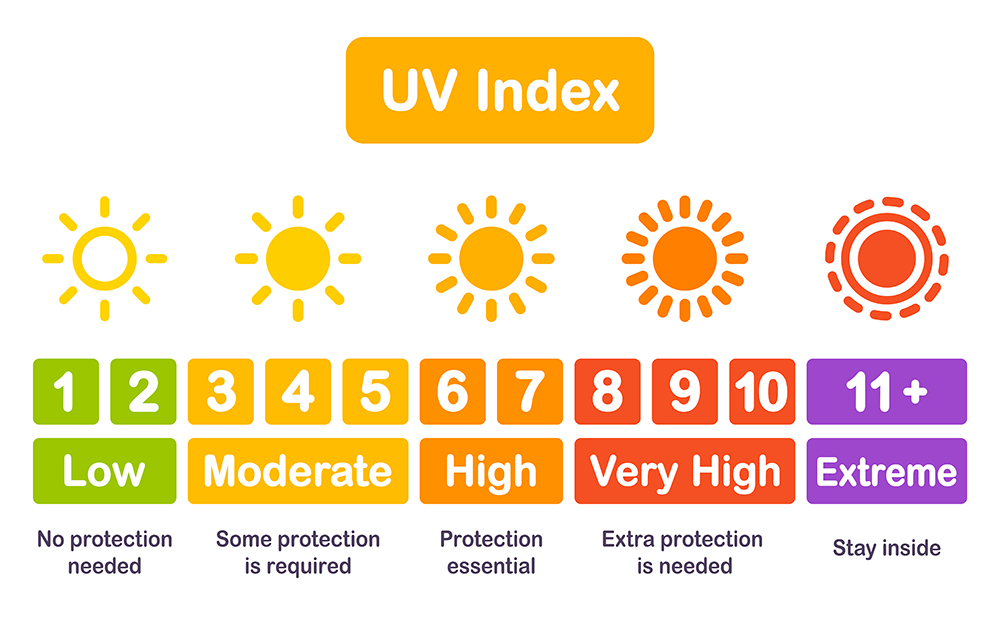UV Index
Excessive UV exposure increases the risk of skin cancer, causes skin aging, suppresses immunity, and more. To estimate the level of UV radiation, a UV index is used: its values range between 0 and ~11. The UV index depends on the time of day, season, location, and weather, and its impact depends on the skin type.

UV Index Scale
| 0-2 | 3-7 | >8 |
| low danger, no protection needed | protection needed – stay in the shade, wear long-sleeved clothing and hat, use sunscreen cream | extra protection needed – stay indoors during the midday hours; when outside, seek shade. Wear long-sleeved clothing, a hat, and apply sunscreen cream |
What You Should Remember
The UV index is usually at its highest from 10 a.m. to 4 p.m., but it depends on the region and time of the year. In Atlanta, the UV index is ~1-3 in winter and 7-11 in summer; the dangerous level of UV radiation is observed from 10 a.m. to 4 p.m.
- Water intensifies UV radiation by 50%, snow – by 85%, and altitude – by 16% at every 1,000 meters above sea level.
- Two feet of water let 50% UVB and 80% UVA through, so one can get sunburned underwater, too.
- UV rays penetrate through clouds. Getting sunburned on a cloudy day is possible.
- The higher the UV index and the softer the skin, the greater the need to apply the strongest sun protection as early as possible.
- Sunscreen cream should be used when the UV index is above 3.
- Infants are recommended to stay in the shade permanently due to skin peculiarities (until 3 years of age, skin melanocytes are not able to produce enough melanin to protect the skin).
Vitamin D
There are many questions about vitamin D. Many people believe that kids should stay in the sun to make vitamin D. Yes, it is true that a small amount of UV radiation is necessary for your skin to produce vitamin D, BUT excessive UV exposure can affect the skin health, eyes, and the immune system. Stay in the sun when the UV index is at a safe level, and your child will get enough vitamin D without any health risks.
How to check the UV index
- If you don’t have a UV index report, make a rough estimate by looking at your shadow: if it’s taller, the UV index is considered low.
- Knowledge of the UV index can help one make health-saving choices.
- Information about the UV index can be found on meteorological websites and smartphones. Start the weather application on your phone and read the last line – it’s where the UV index is given.
